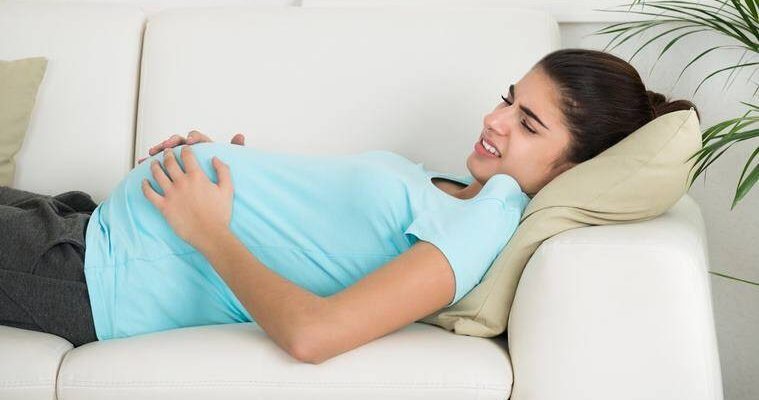Abdominal pain in a pregnant woman can be felt for various reasons. In some cases, this is a natural reaction of the body to changes occurring in the body. In some cases, it is an alarming symptom that requires urgent medical intervention.
Consider the most common causes of abdominal pain in pregnant women.
Fatigue
The most obvious cause of pulling abdominal pain, especially in the late stages. Because of the weight of the growing belly, the body gets tired faster, and even the usual physical activity can cause fatigue, shortness of breath and pain. It is natural that this pain passes during rest.
Ectopic pregnancy
If the fetal egg is not fixed in the uterus, but outside it, the pregnancy is called ectopic. After 2-3 weeks, the growing embryo begins to damage the surrounding tissues and organs – for example, there is often a rupture of the fallopian tube. With this dangerous pathology, a woman’s life is in danger, urgent hospitalization and surgical intervention are necessary. Therefore, it is very important to visit a women’s consultation, where the doctor will determine whether the fetal egg is fixed in the uterus.
The pain of growth
As soon as the child in the womb grows, the uterus stretches. Most often, a woman does not notice this. But in some cases, the stretching of the uterus is felt and causes painful sensations. This often happens when the uterus is hypertonic. This reason is natural and practically not dangerous.
Compression of internal organs
A growing baby not only stretches the uterus, but also gains weight. In some positions, the uterus presses on the adjacent organs, which also causes pain, especially when the baby moves. Sometimes it is enough just to move, change the position of the body, so that the compressed organ is released and the pain is gone.
Constipation
Due to changes in metabolism, as well as under the weight of a growing stomach, the intestines may not perform their functions actively enough, and a pregnant woman suffers from constipation. A mild laxative will help ease the bowel and relieve pain, according to iythealth.com.
Appendicitis
Not very often – about 1 in 10,000 pregnancies-the weight of a growing belly leads to inflammation of the appendix. Sometimes this inflammation passes by itself, the woman does not even have time to understand what the cause of the pain is. But if the inflammation progresses, surgery may be necessary. As with any inflammatory process, appendicitis increases body temperature. In combination with the characteristic pain, the temperature gives a clinical picture that will allow the doctor to make a correct diagnosis.
The training bout
In the third semester, pregnant women often feel rhythmic contractions of the uterus, which can be quite painful. As a rule, they are safe. But if the contractions are strong, frequent and do not stop, you should call an ambulance.
The detachment of the placenta
This is an alarming symptom that is fraught with termination of pregnancy. For various reasons, the placenta begins to peel off from the walls of the uterus. This is fraught with metabolic disorders of the fetus and spontaneous termination of pregnancy. Usually, a woman notices a bloody discharge from the vagina. It is recommended to go to the hospital.
Additional information: Feeling to being pregnant? Read this article.
Spontaneous termination of pregnancy
Of all the listed causes of abdominal pain, this is one of the most dangerous. Spontaneous termination of pregnancy can occur at any time, although in the first half it is called autoabortion, and in the later stages – premature birth. The fact that the cause of pain is in this, you can find out by a combination of several signs: pulling pains in the lower abdomen, spotting, preliminary contractions. Without medical help, the life of both the fetus and the mother is at risk.
What to do if there are pains in the lower abdomen during pregnancy:
- Change the position of the body: stand up or lie down, find a comfortable position.
- Remember what and when you last ate when you emptied your bowels.
- Measure the temperature.
- Check for bloody and other discharge from the genitals.
- Determine if there are contractions.
If the pain is severe, accompanied by discharge, contractions and fever, call an ambulance.
If the pain is tolerable, passes quickly enough, there is no discharge, it is worth telling the doctor about it at the next visit to the women’s consultation.













Comments